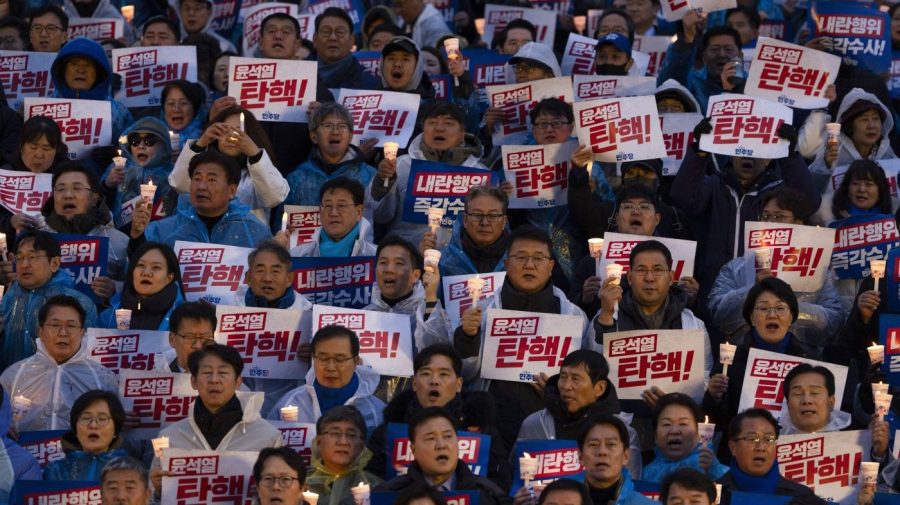South Korean President Yoon Suk Yeol recently faced a harsh backlash following his unprecedented declaration of martial law in the country for the first time since 1980. In a public address on Saturday, Yoon extended an apology for the decision, acknowledging the shock and anxiety it generated among the populace and lawmakers. He expressed his regret, stating, “I am very sorry and sincerely apologize to the people who may have been surprised,” and emphasized his acceptance of the legal and political responsibilities associated with such a grave measure. Amid rising tensions and public discontent, the country’s National Assembly prepared to deliberate on whether to impeach him in a vote scheduled for later the same day.
In his address, Yoon reflected on the seriousness of his actions and the critical reactions from his political peers, indicating that the military’s order was aimed at eliminating what he described as “anti-state forces.” While he acknowledged the distress caused by his martial law declaration, he also reassured the public that such a measure would not be repeated. “There will never be a second martial law,” he stated firmly, signaling a commitment to stabilizing the political climate moving forward, promising to delegate future plans to his political party.
Despite his assurances, the declaration sent ripples of concern throughout his People Power Party. Party leader Han Dong-hoon suggested that Yoon’s leadership should be suspended, citing the potential risks his actions posed to the Republic of Korea and its citizens. According to a report from the Associated Press, there were concerns within the government that Yoon intended to use martial law to imprison political opponents. In response to the fallout, several influential defense figures have been dismissed from their posts for allegedly complying with Yoon’s controversial directive.
As the National Assembly prepared for its decision on impeachment, calls for Yoon’s resignation grew louder. On the eve of the vote, thousands of demonstrators gathered outside the parliamentary building, voicing their demands for Yoon to step down. This widespread public discontent underscores the broader implications of his declaration of martial law and highlights the fracture it has caused within the political landscape.
The backlash Yoon faced reflects deep-seated anxiety within South Korean society regarding the potential for authoritarian governance and the erosion of democratic norms. The public’s response indicates a strong desire for accountability and transparency in leadership, particularly in light of historical experiences with martial law in the country. Yoon’s government, already under scrutiny, now faces intensified pressure as the citizens demand stability and a commitment to democratic principles.
In conclusion, President Yoon Suk Yeol’s unilateral declaration of martial law has elicited a significant political crisis in South Korea. His subsequent apology and assurances about not repeating such an action have not quelled public outrage or the potential for impeachment proceedings. The ongoing events serve as a reminder of the delicate balance between governance and civil liberties, as well as the potential consequences of overstepping democratic boundaries in contemporary politics. As South Korea moves forward, the implications of this incident will likely resonate deeply within the political fabric of the nation.

